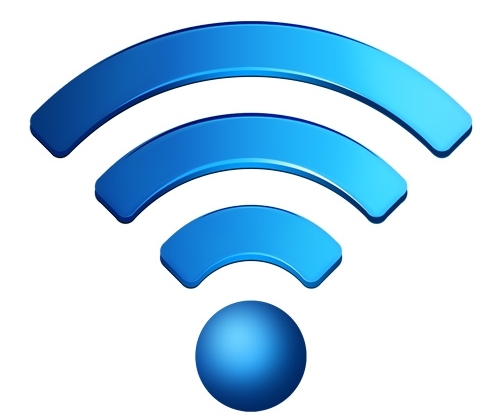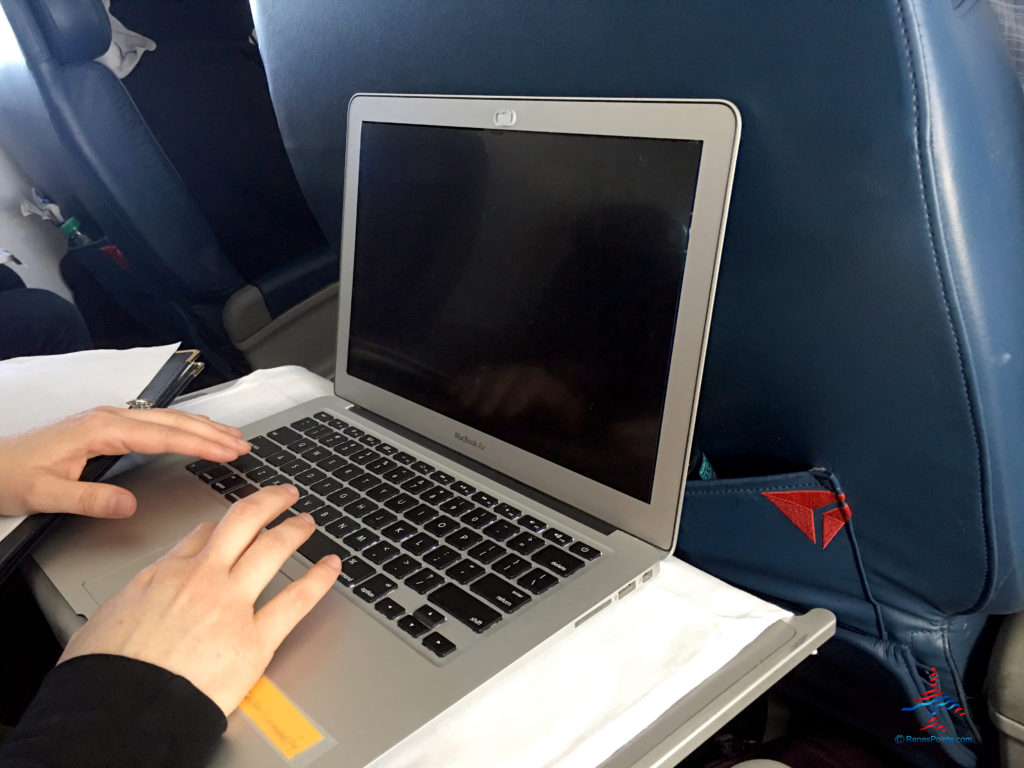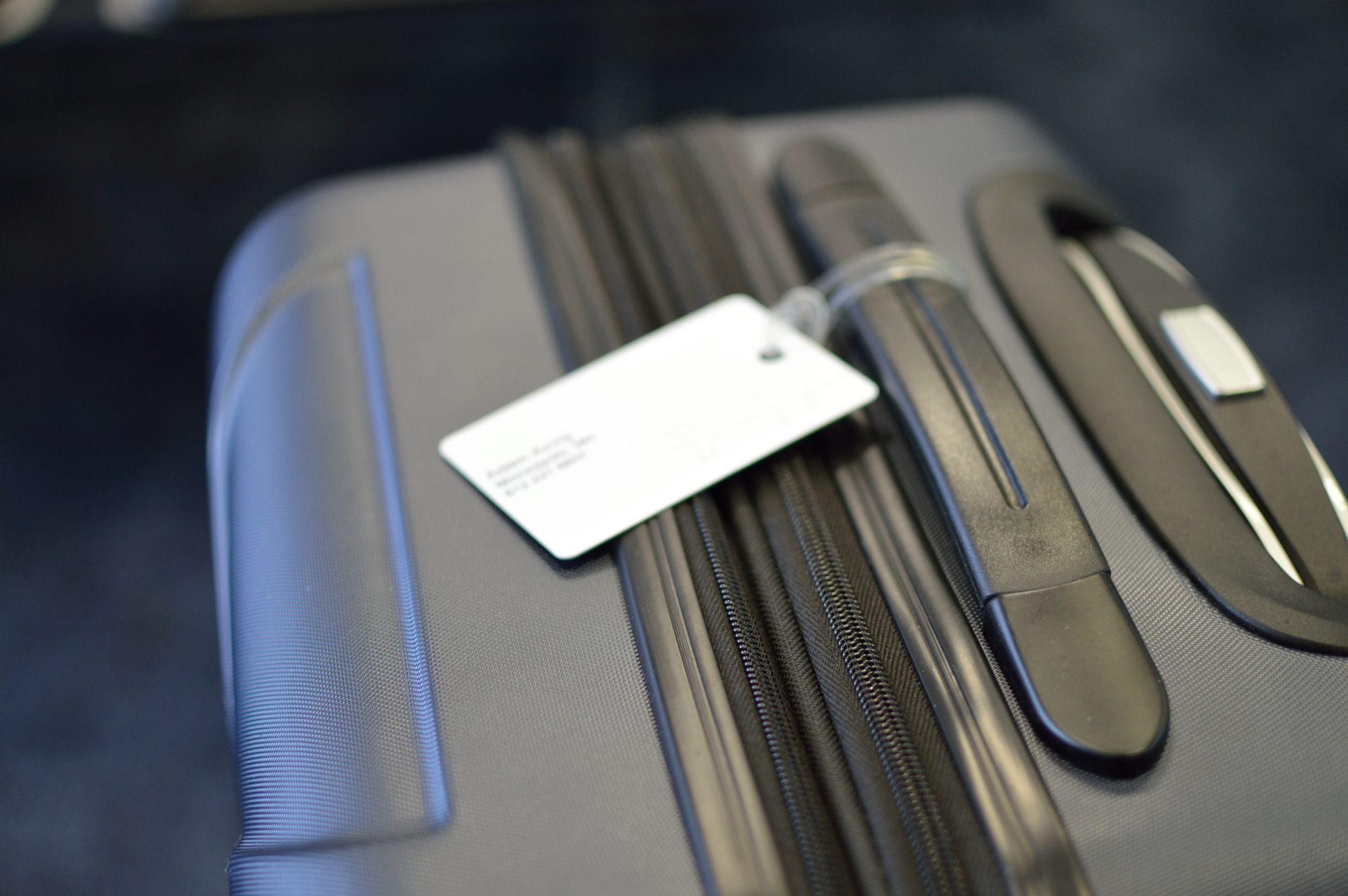Advertiser Disclosure: Eye of the Flyer, a division of Chatterbox Entertainment, Inc., is part of an affiliate sales network and and may earn compensation when a customer clicks on a link, when an application is approved, or when an account is opened. This relationship may impact how and where links appear on this site. This site does not include all financial companies or all available financial offers. Opinions, reviews, analyses & recommendations are the author’s alone, and have not been reviewed, endorsed, or approved by any of these entities. Some links on this page are affiliate or referral links. We may receive a commission or referral bonus for purchases or successful applications made during shopping sessions or signups initiated from clicking those links.
A female passenger was allegedly stalked by an American Airlines employee who obtained her cell phone number.
You might think he got her number from the airline’s IT system somehow. (That’s what I thought.)
But, in fact, he purportedly saw it somewhere else — and involving far less technology:
Her carryon’s luggage tag that had her contact information.
One Mile at a Time’s Ben (Lucky) wrote about this yesterday. Some of the text messages the woman received were:
- “Hey, Ashley! How are you?”
- “You are looking very gorgeous in that gray top today”
- “I really like you!! Come on join me!!”
- Friendship with me will be very beneficial for you. I can always give you good seats, access to the lounges, and free flights.”
Gross.
Attorneys and American Airlines are now involved in the matter. (You can read more here.)
This certainly is a good reminder to take stock of our own privacy practices — and see what may need improving.
Luggage Tags
I admit it: my information is clearly displayed on a luggage tag version of my business card. It has my company’s phone number and address. (I don’t want to put my home address or personal cell number on my luggage tag.)
(Don’t have a business phone number or shudder at the thought of giving people your cell number? Consider signing up for a free Google Voice phone number that will ring to any phone(s) you designate.)
I am, however, going to order some luggage tags with privacy covers.
These stainless steel luggage tags look pretty cool — but $19 for two seems a little steep. Maybe something simpler (and cost-effective) like this set of two Travelon tags is better. (I haven’t ordered any yet so if you have any recommendations, please share them in the Comments section!)
Don’t Show Off Your Boarding Pass
Your names, ticket number, and confirmation numbers/PNR are just a couple items you offer up when posting your unredacted boarding pass on social media.
I’m also shocked by how many people just leave paper boarding passes out and about at airports: in club lounges, at bars or restaurants, or even on a seat next to them.
Use a Secure Connection Online
Free WiFi can be great because it’s, well, free.
“With full visibility into your wireless network traffic, attackers can sniff out passwords as you log into accounts and steal credit card numbers as you shop,” GeekWire’s Corey Nachreiner writes. “With full control of your traffic, they can even inject malware—such as cryptocurrency miners—directly into responses from websites that you would otherwise trust.

But what if a public WiFi network is password protected? Is that still safe? Not necessarily.
“Even encrypted public Wi-Fi that requires a shared key or password isn’t safe if that password is readily available to everyone who wants to connect,” says Mr. Nachreiner. “Though it requires a little more work, attackers can still use the password to ultimately connect to and decrypt all wireless traffic.”
Your best bet is to use a VPN (virtual private network). Both René and I use and recommend Tunnel Bear. It’s easy to use and doesn’t cause the massive slowdowns I had with other VPN products.
Laptop and Tablet Privacy Screens/Filter
Travelers are usually in pretty close quarters — whether in planes, at gate areas, on shuttles, etc. Many of us use our laptops and tablets where sensitive data might be visible to others.
I bought a privacy filter for my laptop shortly after reading Rene’s post about them several years ago.
How well does it work? A fellow guest sitting next to me at the SLC Sky Club saw no glare from my laptop screen. She wondered if I was actually working on a powered-up device or just crazy. (The answer, of course, to both questions is “yes.” 😉 )
My wife is an insurance consultant, so privacy filters and VPNs are her best friends when we travel.

I have a 3M privacy filter. Even though it was a little spendy (I think it was about $40 or so), it’s held up great for almost five years.
What Do You Do to Protect Your Privacy While Traveling?
Please share your tips in the Comments section!
Featured image: iStock/Getty
Advertiser Disclosure: Eye of the Flyer, a division of Chatterbox Entertainment, Inc., is part of an affiliate sales network and and may earn compensation when a customer clicks on a link, when an application is approved, or when an account is opened. This relationship may impact how and where links appear on this site. This site does not include all financial companies or all available financial offers. Opinions, reviews, analyses & recommendations are the author’s alone, and have not been reviewed, endorsed, or approved by any of these entities. Some links on this page are affiliate or referral links. We may receive a commission or referral bonus for purchases or successful applications made during shopping sessions or signups initiated from clicking those links.












Tumi has a great luggage tag with a cover that hides your business card completely. It has a secure button and you have to unbutton it to read the info.
So – you often talk about how booking a trip with miles might be less on a Delta partner, but I am not sure how to do that? I am looking to go to Europe, but no mileage options are available when I want to go. How can I check with Air France but use my Delta miles?
That is quite disturbing. Not only should you keep your private info when you travel as much secured and hidden as possible, but you should also be careful with unsecured public wifi, which you can usually find in the airports. From my personal experience, I can say that it’s horrifying when someone manages to hack your PC just because you were browsing unprotected. After I got hacked I started using a VPN, you can read more on this in an article I found when I was looking for more info on this topic: https://medium.com/@mill.brucon/why-you-need-a-vpn-when-accessing-public-wi-fi-76978f3a7a77